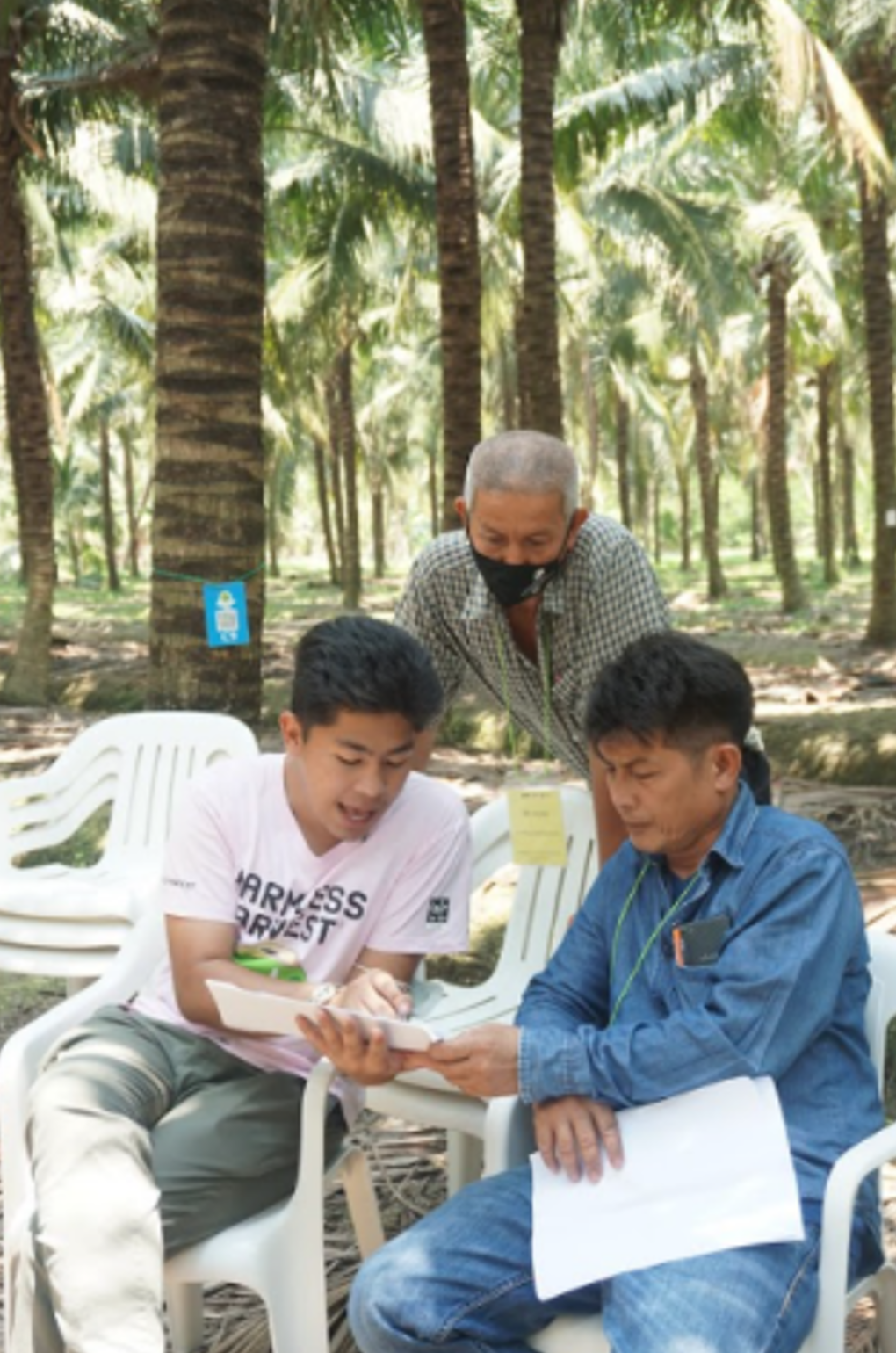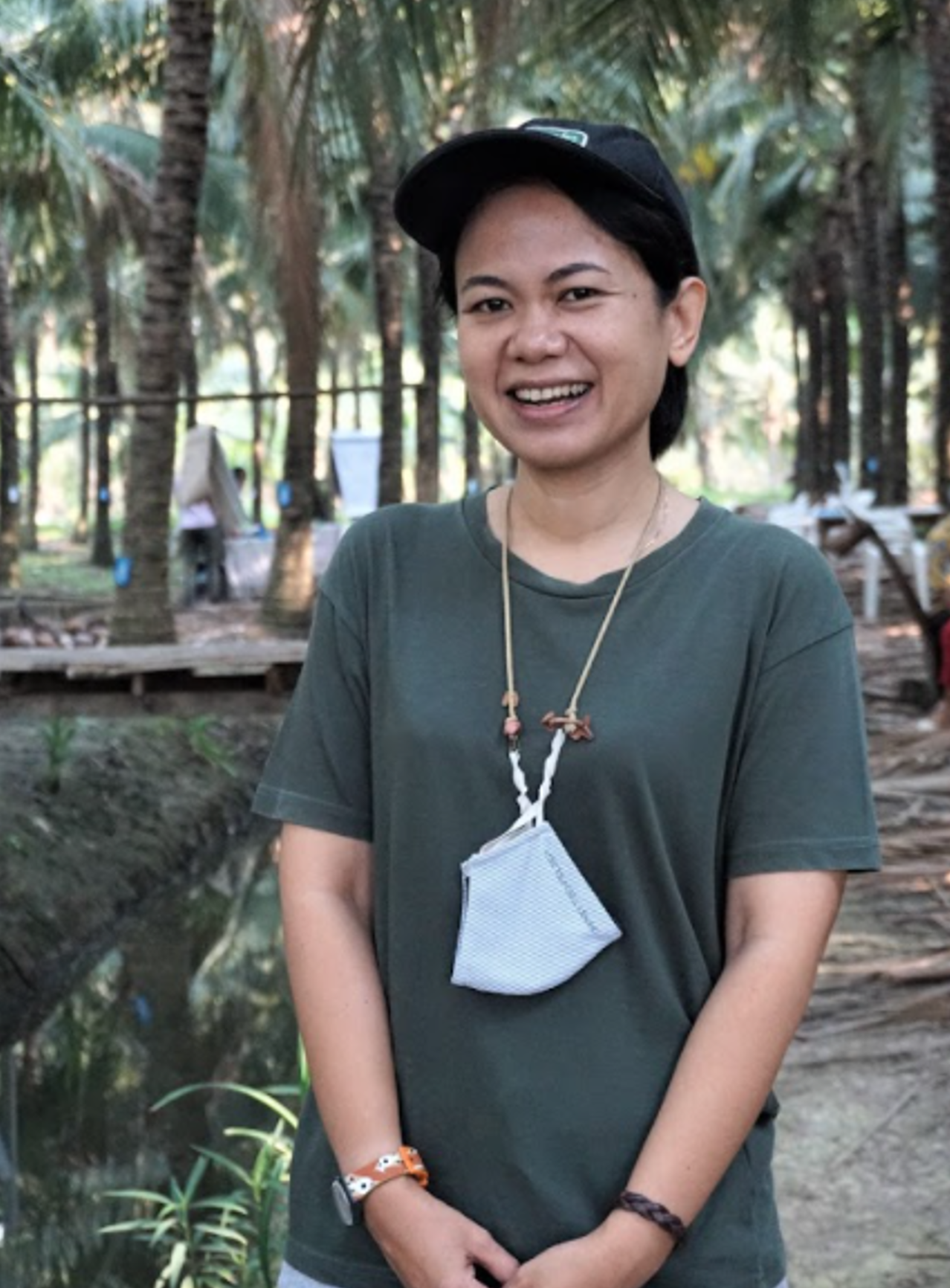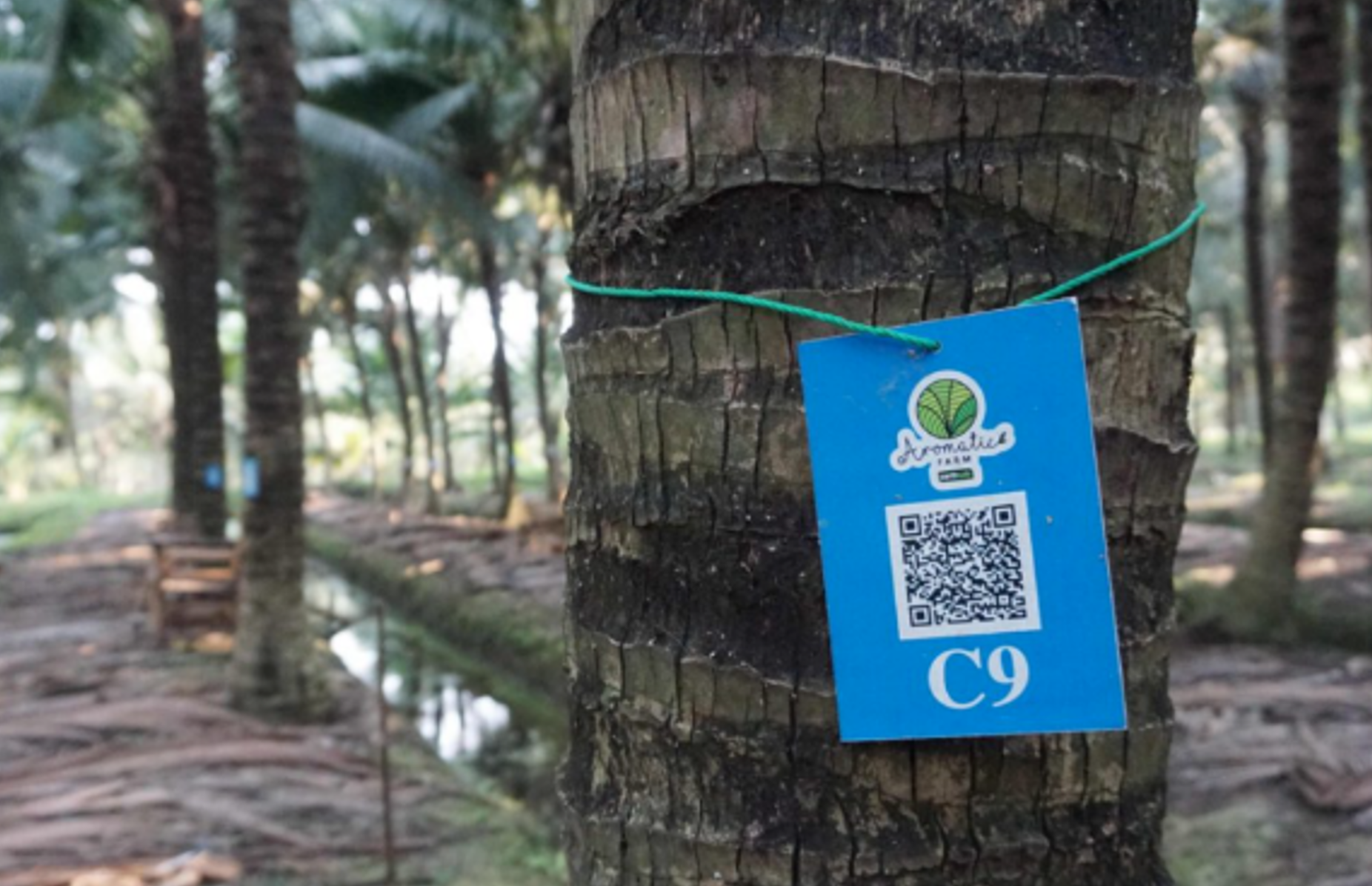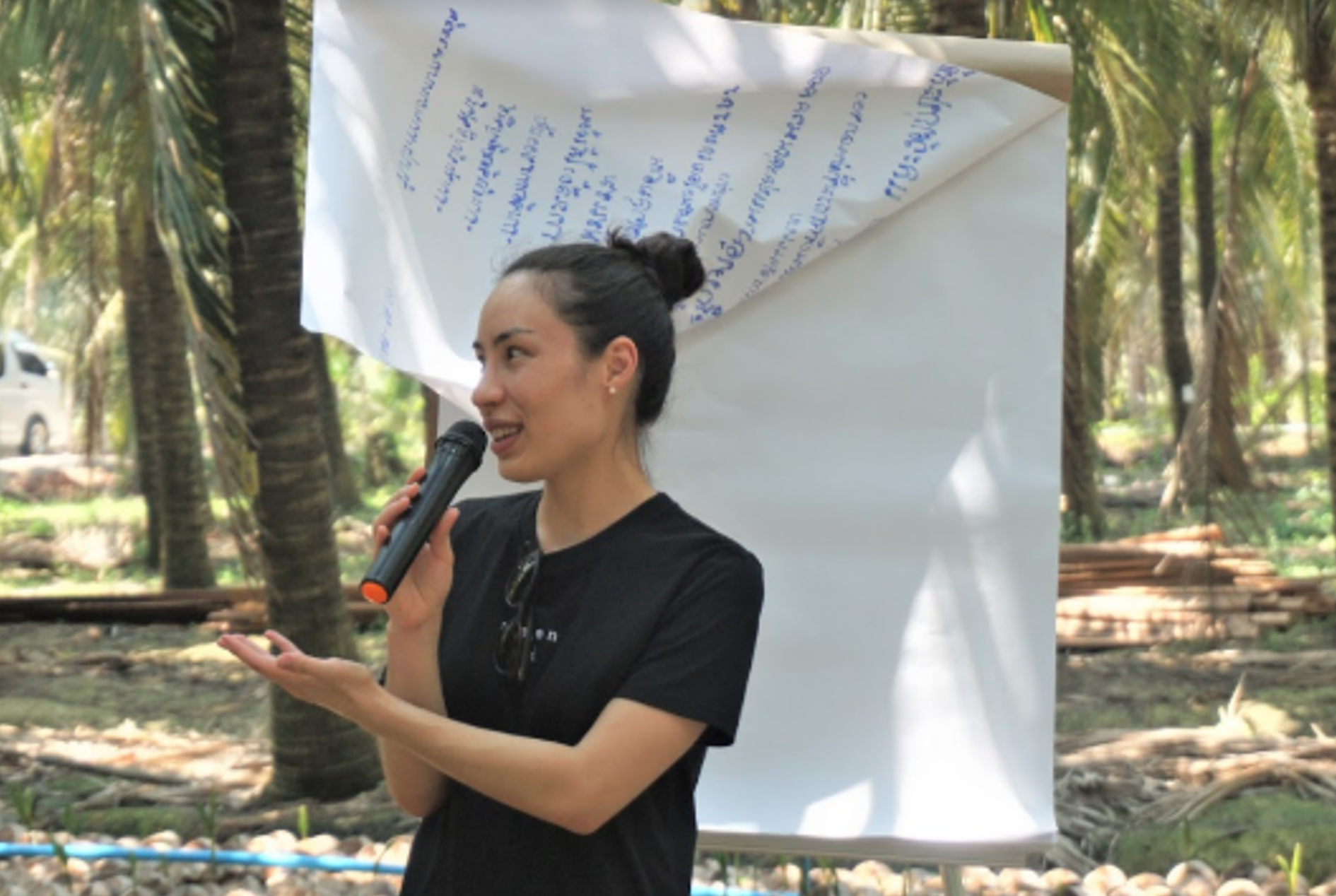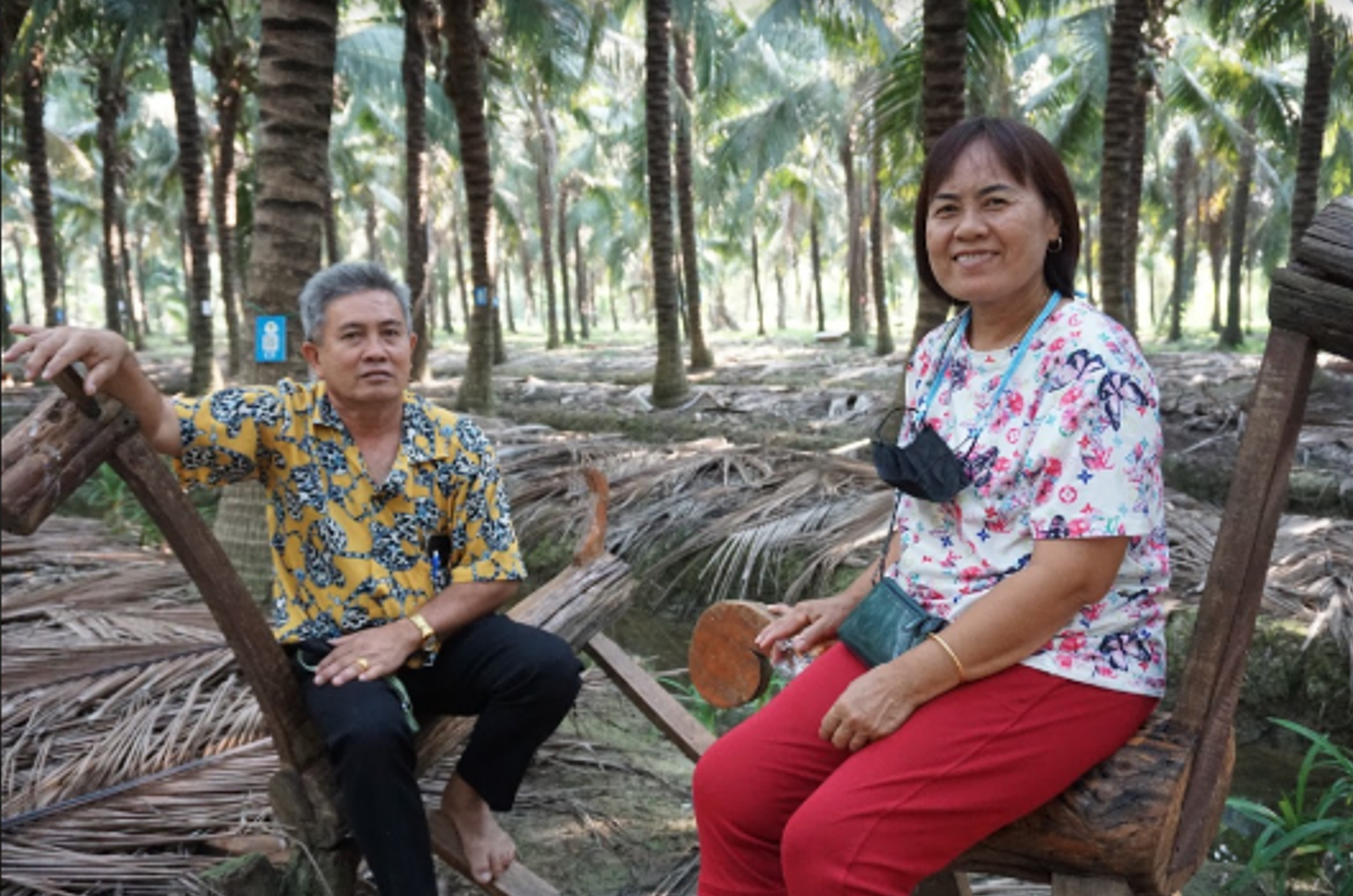Regenerative organic agriculture helps to improve coconut farmers’ livelihoods
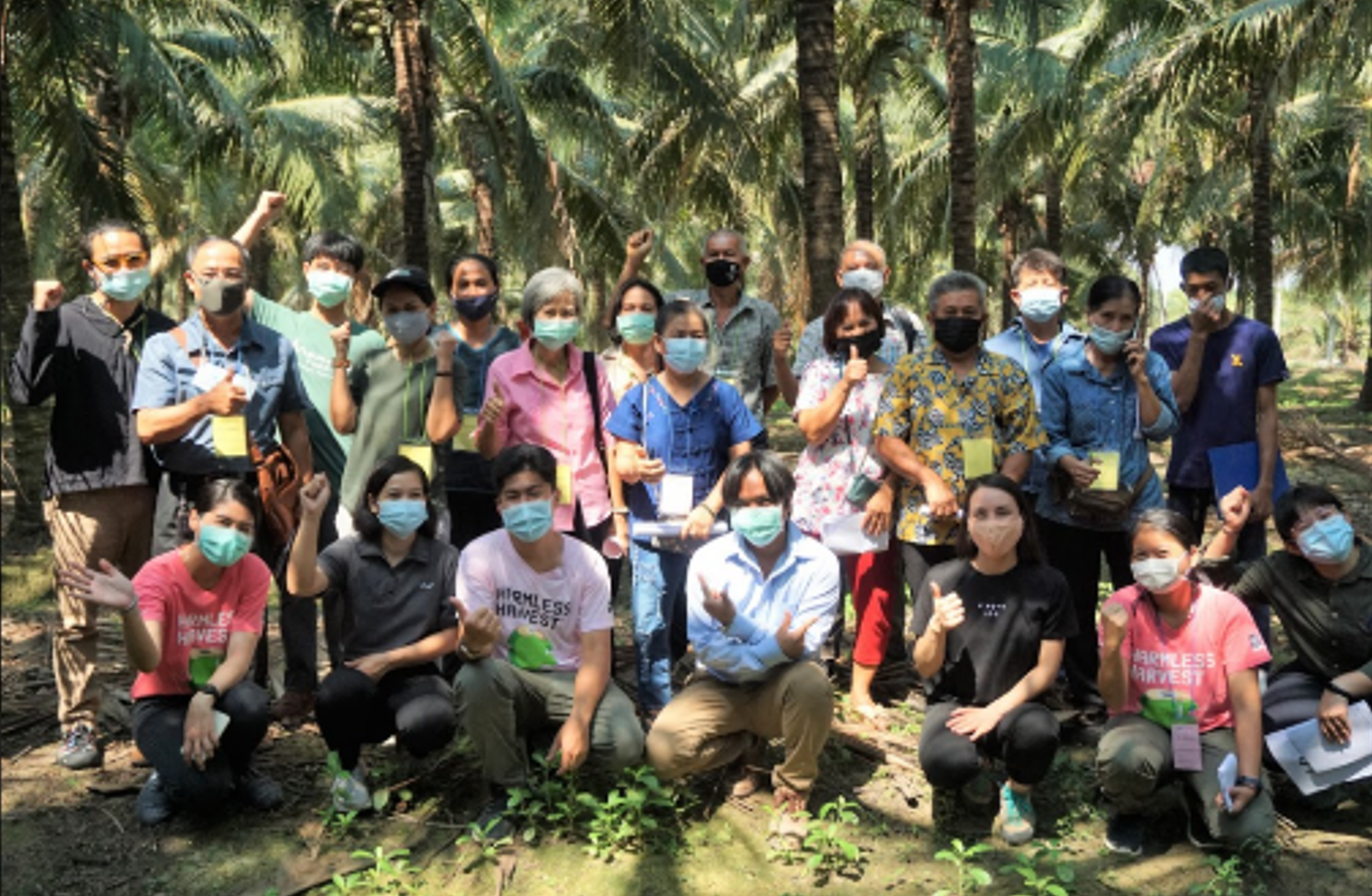
Srijakpat Chalermchai
Ratchaburi, Thailand – It is early in the morning and the temperatures have reached nearly 40C at the Aromatic Farm in Damnoen Saduak district, Ratchaburi province. However, a group of Thai coconut farmers are enjoying their time talking to each other outdoors while drinking coconut water to quench their thirst and beat the summer heat. It is the first reunion for these farmers since taking part in a pilot training on regenerative organic agriculture late last year. Together they share their experience and lessons learned while implementing regenerative organic agriculture practices at their farms over the past few months.
Since its launch in June 2020, the Regenerative Coconuts Agriculture Project (ReCAP) has provided coconut farmers in piloted provinces of Samutsakhon, Samutsongkram, Nakhonpatom and Ratchaburi with a series of trainings on regenerative organic agriculture. The first batch of 13 coconut farmers have so far learned practical techniques to enhance the sustainability of their coconut farms, while remaining profitable.
The project showcases Thailand’s first collaboration between Danone Ecosystem Fund, Harmless Harvest and GIZ. The aim is to transform conventional practices of coconut farmers towards regenerative organic practices, thereby reducing their impact on climate change and strengthening the livelihoods of farmers and local coconut farming communities.
Coconuts are one of Thailand’s most important crops with 90.61 tonnes exported to the top three markets in the United States (582.23 million baht), Hong Kong (221.74 million baht) and Germany (83.31 million baht) based on the export value at 3.39 billion baht in 2019. Nowadays their consumption keeps increasing rapidly because of global health trends. Thailand – the world’s main exporter of aromatic coconuts has had its exporting value increase dramatically during the past year. Most coconut farmers rely on coconuts as their only source of revenue and have turned to chemical-laden monoculture crop farming just to boost their yields in order to meet the skyrocketing demand.
“Organic agriculture can bring a healthy future to not only the farmers, but also consumers and our planet. The key success in doing regenerative organic agriculture is to let the nature take care of itself. As a farmer, we should not stop learning new and diverse agricultural knowledge for improving ourselves and our business,” said Nuanlaor Dherdkiattikun, the owner of Aromatic Farm and a member of the first batch of ReCAP pilot farmers.
Ms Nuanlaor has switched to organic agriculture with an aim to efficiently utilise resources in her coconut orchards, which have been passed down over generations, while improving food safety to meet nutritional needs. Coconuts produced from her farm receive certifications from several organisations including Good Agricultural Practice (GAP), Earth Safe Standard, and the Certificate of Conformity of Geographical Indication (GI).
The 45-year-old coconut farmer showed her farmer colleagues how cover crops and stingless bee farming are conducted at her farm. She also adopted smart agriculture into practice by utilising a big data system and QR code labelling for quality control.
Agung Bimo Listyanu, Danone Ecosystem Fund regional coordinator, said “We are excited for the project and its progress towards Regenerative Agriculture practice. The reunion will help to reconnect our farmers in order to share their best case practice and we should do it more often.”
Lisa Faust, ReCAP Project Manager, said that such reunions are important to keep the motivation high and ensure that the ReCAP team provides the best support for their pilot farmers.
“It was great to see how our pilot farmers are supporting and encouraging each other in their transformation process towards regenerative organic farming. We are lucky and thrilled to be working alongside pioneers of sustainable agriculture.”
Chaichana Rodcharoensuk, one of the 13 piloted ReCAP farmers, said he started adopting waste management and stingless bee farming at his coconut orchard in nearby Samutsakhon’s Ban Phaeo district. He also puts into practice techniques learned by growing intercrops and cover crops for enhancing soil nutrients.
After having attended the training of ReCAP, the 58-year-old coconut farmer , Mr Chaichana has implemented practical advice and various techniques from the project.
“I cannot really say my farm is yet 100% regenerative. However, with the support from ReCAP staff and knowledge learned from the training sessions, I have more confidence in myself to transform my coconut orchard into a sustainable farming in the long run,” he said.
SIMPLE TIPS FOR COCONUT FARMERS
- Plant cover crops such as roundleaf bindweed or agracejo rastrero to reduce soil erosion and improve soil health
- Adding intercropping with produce such as banana, coffee, lemongrass, lolot, pandan, or pepper trees can increase income and enhance biodiversity
- Make compost and vermicompost to increase soil fertility
- Raise stingless bees to increase coconut fruit growth through pollination, and receive an extra income by selling the honey
- Recycle waste from the farm (coconut leaves, husks, etc.) to make own compost
- Apply organic pest control such as red palm weevils and rhinoceros beetles
- Release carp fish into the canals to improve water quality and control duckweed or moss
Highlights:
- Since its launch in June 2020, the Regenerative Coconuts Agriculture Project (ReCAP)has provided coconut farmers in piloted provinces of Samutsakhon, Samutsongkram, Nakhonpatom and Ratchaburi with a series of trainings on regenerative organic agriculture. The first batch of 13 coconut farmers have so far learned practical techniques to enhance the sustainability of their coconut farms, while remaining profitable.
- The project showcases Thailand’s first collaboration between Danone Ecosystem Fund, Harmless Harvest and GIZ. The aim is to transform conventional practices of coconut farmers towards regenerative organic practices, thereby reducing their impact on climate change and strengthening the livelihoods of farmers and local coconut farming communities.
- Coconuts are one of Thailand’s most important crops with 90.61 tonnes exported to the top three markets in the United States (582.23 million baht), Hong Kong (221.74 million baht) and Germany (83.31 million baht) based on the export value at 3.39 billion baht in 2019.
